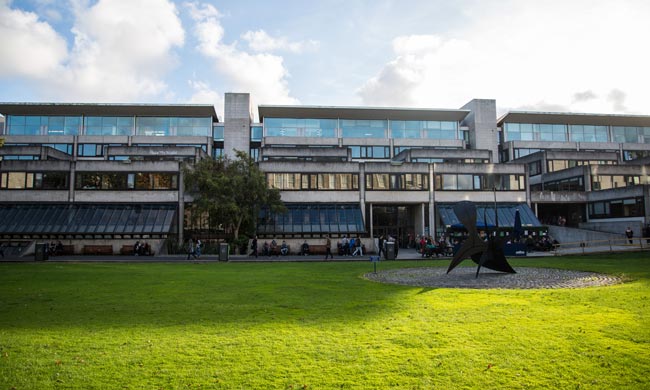Trinity has appealed for an exemption to controversial government proposals for higher education, asking for time to implement “similar reforms” itself rather than allow the state to make sweeping changes to its governance structures, The University Times has learned.
In a final-day submission to the government on proposed changes to the Higher Education Authority (HEA) Act, obtained by The University Times, Trinity asked for three years to make changes that “respect the Government’s wishes while also preserving many of the best aspects of Trinity’s model”.
The submission, which stated Trinity’s belief that universities perform best “when independent from state control”, proposed a solution it said could “respect both the Bill’s intentions and Trinity’s principles”.
Written by College Secretary John Coman, it appears to show a College seeking compromise, not conflict, amid proposed changes that could drastically alter College’s governance structures as well as abolishing Trinity’s Visitor system and stripping Provost Patrick Prendergast of his role as chair of the College Board.
The submission referenced the Universities Act of 1997, which allowed Trinity an exemption to some aspects of the act and allowed the College to make “voluntary internal reforms”.
“We believe that a similar mechanism should be included in the Bill under discussion to enable Trinity’s community to instigate internal reforms as was done under the Universities Act, 1997”, the submission said.
In 1997, Trinity was granted three years to introduce internal reforms instead of being subjected to the Universities Act, which intended to introduce widespread reforms to universities.
The submission asked the government to make a similar exception for Trinity this time around, adding that a working group has been set up in Trinity to review the makeup of Board and come up with possible changes to its structure.
It stated: “Trinity’s Board has already initiated a review and could agree to implement similar reforms over a similar timeframe if the HEA Act grants the university the space to do this.”
College submitted its recommendations on the deadline day for submissions, without consulting Board on the details of the submission. The government’s proposal was circulated in a memorandum to Board members at its meeting of September 11th.
Minutes from the meeting of Board on September 11th show Prendergast stating his hope that Trinity “will be successful again in introducing a new Private Bill”. He also expressed concerns about the appointment of an observer for universities and the scrapping of the Visitor process.
At the meeting, the Board Review Working Group was tasked with studying the government’s proposed changes and reporting recommendations back to the Board.
In its submission, Trinity expressed doubts about the efficacy of replacing the Visitor system – which it described as “a highly-effective dispute resolution process” – with audit power granted to the HEA – which will be rebranded the Higher Education Commission (HEC) under the proposals.
It also described the government’s power to be given “any information concerning the performance by a university of its functions” as “disproportionate, especially in a scenario where state funding has steadily declined and now accounts for approximately 40% of Trinity’s funding”.
And it criticised a proposal to give the HEC authority over Trinity’s Code of Practice for governing the university, arguing it gives the government “dawn raid” powers.
It expressed concerns about the radical changes to the Board – reducing the size from 27 to 15 and replacing internal members with government appointed officials – as well as the removal of the Provost as Chair.
“While the case for some change is merited”, it stated, “we would like scope to change to [sic] composition of the Board to ensure the internal community continues to be well represented, along with appropriate external expertise”.
Last month, The University Times revealed the scope of the changes proposed by Minister for Higher Education Mary Mitchell O’Connor.
Internal Board documents obtained by The University Times, as well as conversations with five separate Board members, some of whom spoke on the condition of anonymity, revealed concerns among staff about the possibility of heightened government interference in Trinity’s affairs.
Sarah Alyn-Stacey, a Fellow and a member of Board, told The University Times: “This is the biggest challenge to the identity of the College since probably the 1967 merger [of Trinity and University College Dublin] proposed by Donagh O’Malley.”
Alyn-Stacey said that “the current composition of the working group, which was set up just to review the self-evaluation documents by Board, is not sufficient for the current challenge presented by these government proposals”.
“We need a far more extensive committee to deal with this, along with some hard hitters and some high-profile people in College.”
Speaking to The University Times, Prof Eunan O’Halpin, the Bank of Ireland Professor of Contemporary Irish History and a member of Board, said the proposed changes are a “cause for great concern”.
“It’s just reducing the involvement of the people who actually work here in the running of the university. And that’s intrinsically wrong”, he said.
O’Halpin said that “it’s very important that there’s sufficient people speaking who come from the College community”, and added that a smaller Board would “completely lose any kind of representative quality”.
Alyn-Stacey said she was worried about the risk to university autonomy: “We’re going to end up with universities that are shaped in terms of the disciplines taught by government agendas.”
College, she said, “has to give a robust response”.
In an email statement to The University Times, Trinity’s Director of Public Affairs and Communications Tom Molloy said that the “size of the Trinity Board and its composition are currently set down in legislation and a change in that legislation by the Oireachtas would be required in order to amend it”.
Molloy wrote that the Board’s “working group is to meet in the coming weeks and will take the time required to conduct a comprehensive review”.







